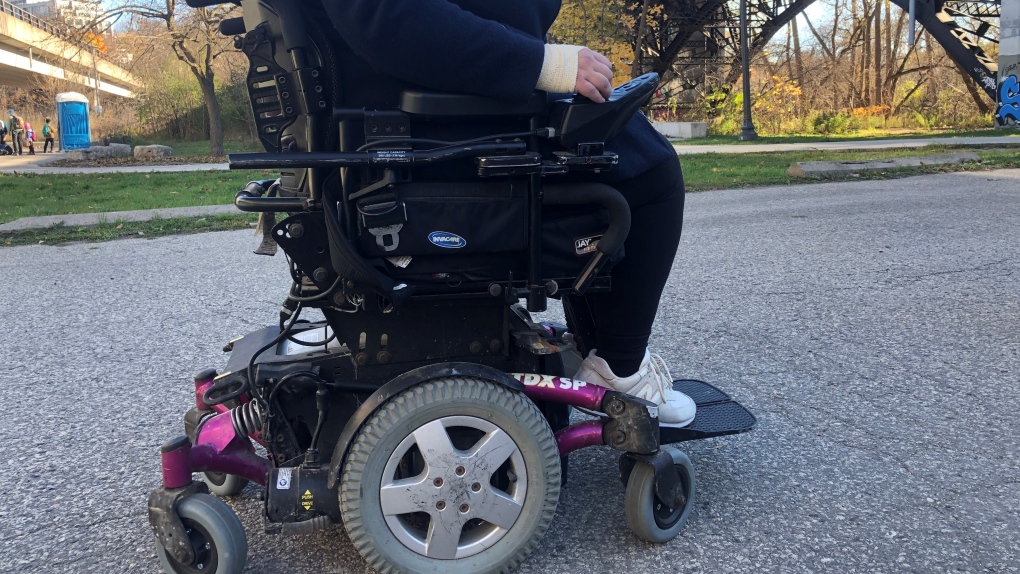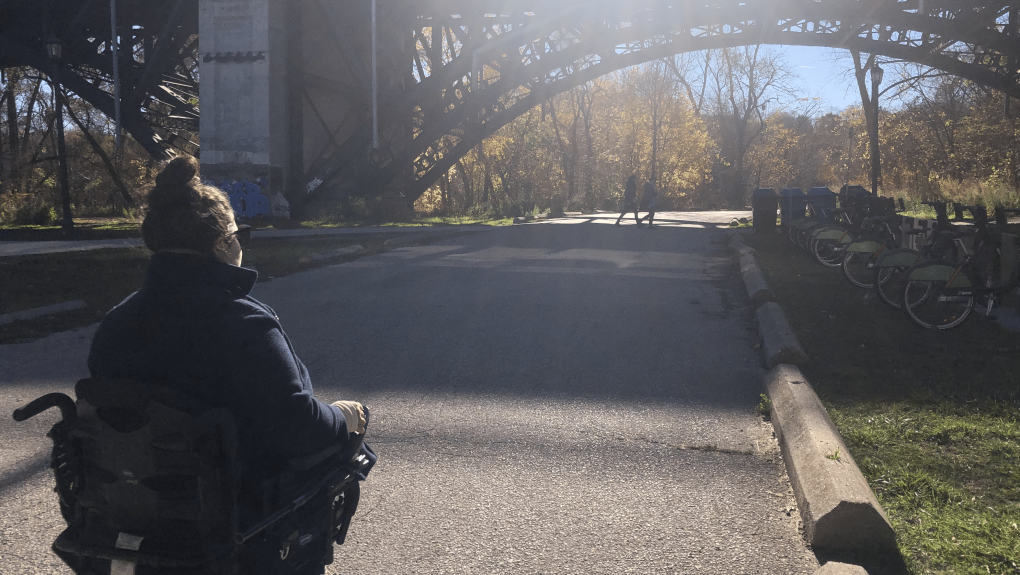风萧萧_Frank
以文会友Toronto woman in final stages of MAiD application after nearly a decade-long search for housing
Why this Toronto woman is seeking MAID
A disabled 32-year-old woman says she is in the final stages of requesting a medically-assisted death after seven futile years of applying for affordable housing in Toronto.
Denise, whose real name has been omitted to protect her identity, suffers from a condition known as Multiple Chemical Sensitivity. Exposure to chemicals that commonly linger in households, like laundry detergents and air fresheners, triggers debilitating symptoms.
Her skin develops rashes, she suffers blinding headaches that can provoke temporary paralysis, and the constant risk of an anaphylactic episode looms over her.
This has made securing housing a seemingly impossible pursuit.
RELATED STORIES
Following a CTV National News article published this spring detailing her pending approval for medical assistance in dying (MAiD), Denise said the outpouring of public support she received evoked a glimmer of hope for her future. But now, it's beginning to dull.
“I’ve been given this quasi hope where I see a way that I could survive now … the pieces just aren’t adding up and the money is the clock,” she said.
MAiD was legalized in Canada in 2016 for candidates whose natural death was reasonably foreseeable and later amended to include Canadians enduring an “intolerable” and “irreversible” illness, disease or disability.
More than 1,000 donors raised money in the spring to help Denise secure permanent housing in a wheelchair-accessible space with uncontaminated air. But six months later, she is still searching for a home as funds and time run out.
“I currently have two months left,” Denise said, nodding to her remaining pool of money.
“I have requested final approval for MAiD,” she said.
TEMPORARY RELIEF
At a hotel in Toronto, perched on a ravine surrounded by trees and fresh air, Denise was finally able to take off her respirator and breathe in the spring.
The hotel was the only temporary accommodation she could find that was willing to pause their use of cleaning products with fragrances and chemicals 24-hours before her arrival.
In her last apartment, she couldn’t escape the chemicals.
Denise, who has been a wheelchair user for six years as a result of an upper spinal cord injury, is a recipient of Ontario’s Disability Support Program (ODSP). She calls her $1,278 a month “government-regulated abject poverty.”
The plan was never to stay at the hotel for an extended period of time. “This is completely unsustainable,” Denise said. But months later, she remains in the room.
“I’m ashamed I’m still here.”
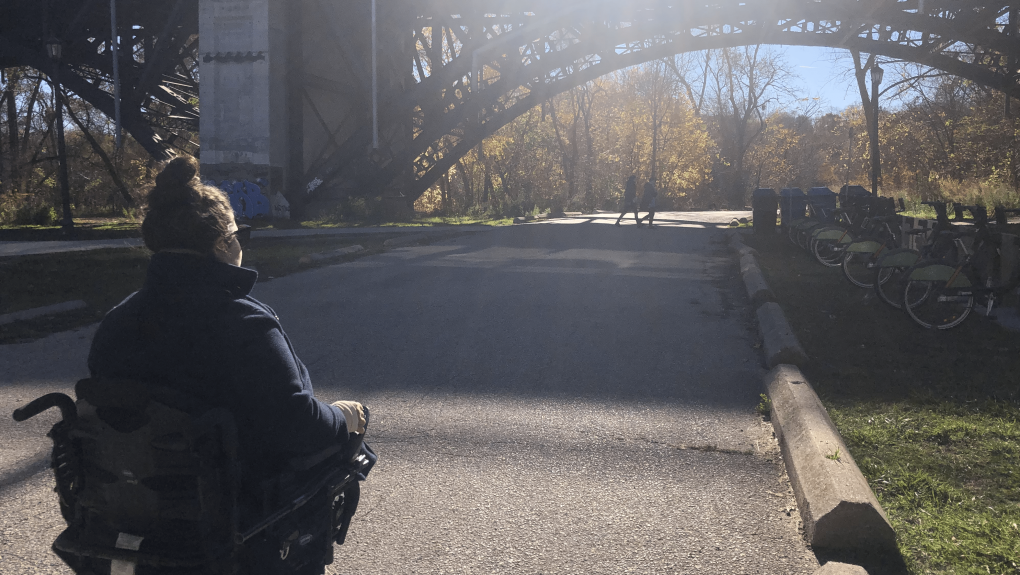 In October, Denise toured a city-run unit offering below-market rent for the first time – something she’d been searching for for the better part of a decade.
In October, Denise toured a city-run unit offering below-market rent for the first time – something she’d been searching for for the better part of a decade.
But when she saw the available space, she found it to be unlivable.
“The first housing that I saw did not have adequate air flow. There was only one window. There was a mold smell in the bathroom, dead cockroach carcasses,” she said.
“This is where it becomes an accessibility issue because essentially, there are no affordable rentals in the city that are designed or accommodate Multiple Chemical Sensitivity.”
HOUSING AS A HUMAN RIGHT
Toronto-St. Paul's MPP Jill Andrew said her office reached out to Denise in March after hearing about her fruitless bid for safe and affordable housing.
“The precarity of Denise’s situation should never happen, but this is the devastating reality for precariously housed individuals in Ontario,” Andrew told CTV News Toronto.
Her team wrote letters to Premier Doug Ford, along with Steve Clark, the minister of municipal affairs and housing, and Merrillee Fullerton, the minister of children, community and social services.
“To my knowledge, none of these letters have been responded to,” Andrew said.
“No one should have to seek Medical Assistance in Dying (MAiD) because of a government’s refusal to act in the best interests of individuals experiencing homeless or disability. Denise needs the Ontario government to act today. She has no more time to spare."
Ontario’s minister of municipal affairs and housing told CTV News Toronto the provincial government has delivered “historic results” in building more housing to address homelessness for vulnerable Ontarians, alongside a five per cent ODSP increase in September.
However, he did not directly address Denise’s situation.
The executive director of Toronto's housing secretariat, Abigail Bond, said the city is “disheartened” by news of a resident considering MAiD and hopes Denise will reconsider.
Bond said the city is actively helping Denise obtain “suitable housing,” which includes options in the private market and through the city's housing partners. She added the city has helped Denise secure a portable housing benefit that assists with rental costs in the private market.
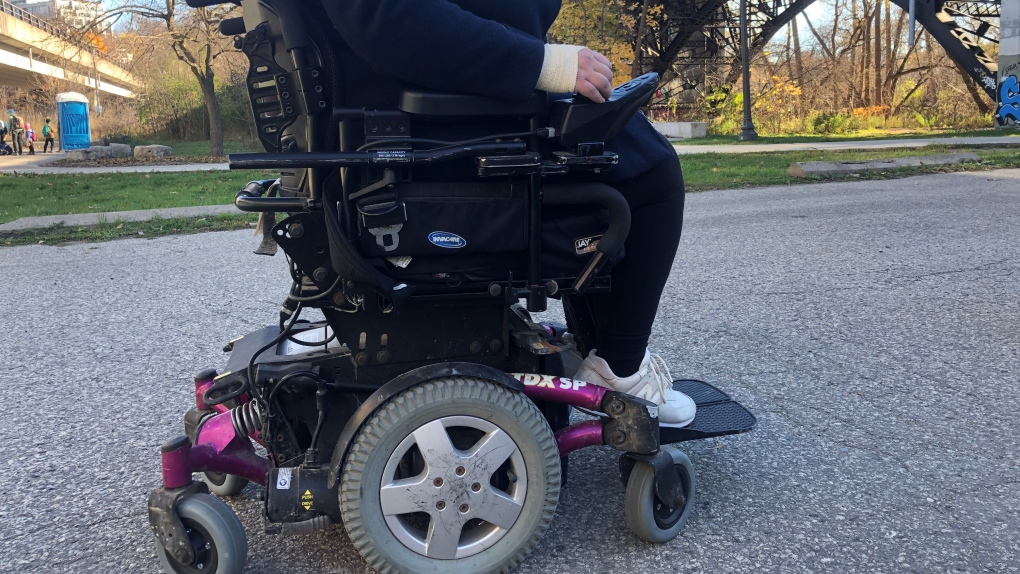 But Denise said she was warned by city staff that finding city subsidized housing that could accommodate her disability would be like “finding a needle in a haystack.”
But Denise said she was warned by city staff that finding city subsidized housing that could accommodate her disability would be like “finding a needle in a haystack.”
The federal government recognized the right to adequate housing as a fundamental human right in 2019, which Susannah Bunce, an associate professor of human geography at the University of Toronto, said the city needs to address.
“We need to start proactively discussing this in Toronto, about seeing housing as a human right and not something to be seen as a commodity,” Bunce said.
“It’s a situation that’s been produced by regulations that have been lifted by the provincial government, in particular over the last few years, to cater to the needs of landlords and people who want to invest in housing, rather than people who need good quality, safe, affordable housing.”
FINAL APPROVAL
Denise said there is only final paperwork standing between her and a medically-assisted death.
Funeral arrangements have been made and a power of attorney has been signed.
To be considered, an applicant needs two independent doctors or nurse practitioners to confirm they meet the criteria, which Denise has done. That goes alongside a written request for MAiD signed by the person who is applying for it.
Once the forms are filed, Denise will enter a 90-day wait period before MAiD takes place.
“It’s the only option,” Denise said.
“Living in an unsafe environment is so detrimental to me and it causes so much suffering that it is just physically unbearable.”
With files from CTV National News’ Avis Favaro and Heather Butts.
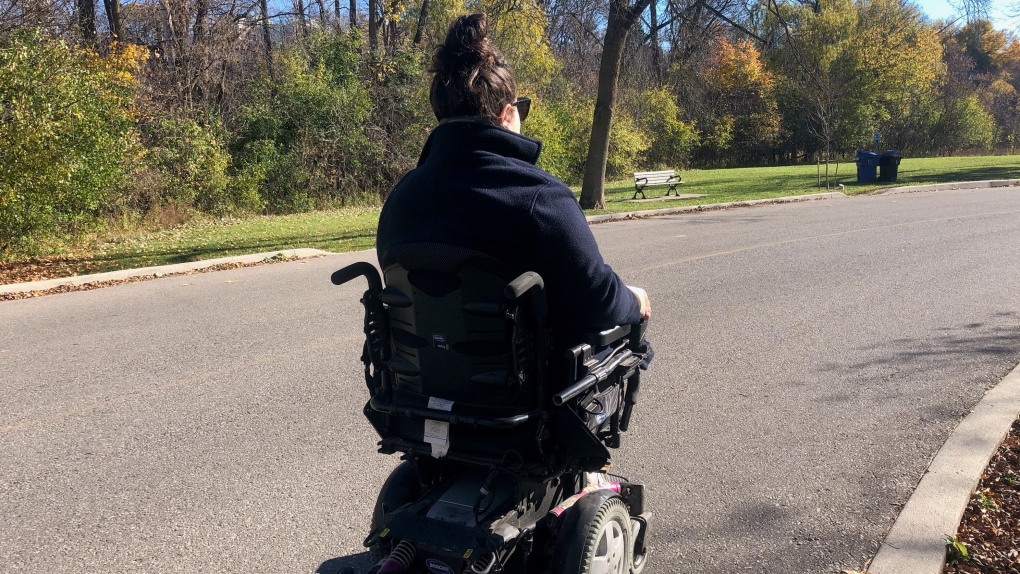
多伦多32岁残疾女子住不起房,无奈选择安乐死
Nov 19, 2022 加国无忧
一名32岁的多伦多残疾女子在申请可负担住房7年无果后,正处于申请安乐死(Medical Assistance in Dying,MAiD)的最后阶段。

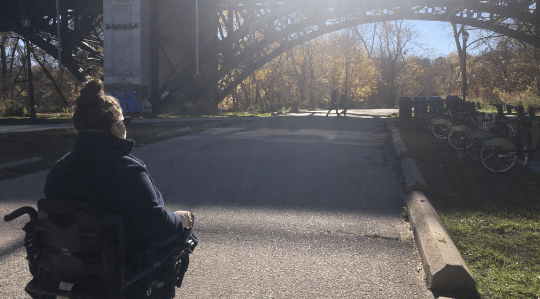
图源:CTVNews
丹妮丝(化名)患有一种名为“多元性化学敏感症(multiple chemical sensitivity,简称MCS)”的疾病,即使接触残留在家中的常见化学物质,如洗衣粉和空气清新剂,都会引发轻微的症状,包括皮肤出现皮疹,偏瘫性偏头痛,并且过敏发作的风险一直笼罩着她。
由于上脊髓损伤,丹妮丝已经坐轮椅长达6年。她每月依赖于安省残障保障计划(ODSP)发放的1,278元援助金艰难度日。
在这种情况下,丹妮丝想要寻找一个可负担的保障性住房,似乎是一种不可能实现的奢望。
在今年春天媒体报道丹妮丝的故事后,她获得了超过1,000名捐助者的帮助,找到一个可供轮椅进出且空气未受污染的永久性住所。但六个月后,资金所剩无几,她又得寻找其他房子。
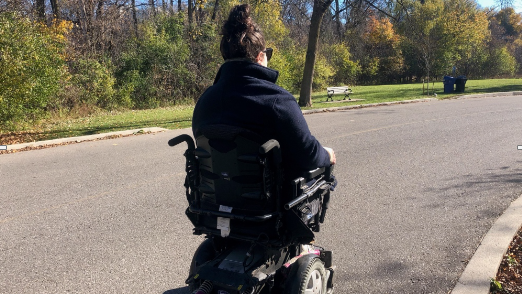
图源:CTVNews
丹妮丝现在住在多伦多的一家酒店,位于一个被树木和新鲜空气包围的峡谷中,她终于可以摘下呼吸器呼吸。
这家酒店是她能找到的唯一一家愿意在她抵达前24小时,停止使用含有香料和化学品的清洁产品的临时住所。
但是,长期住酒店对她来说,是一个完全不可持续的方法。
上个月,丹妮丝第一次找到一个提供低于市场租金的市属单位,这是她10年来一直在寻找的住所,然而条件根本不适合居住。
她说,“房屋没有足够的空气流通,只有一扇窗户,浴室里充斥着霉味,还有蟑螂尸体的味道。这就是问题所在,基本上,这个城市没有既适合多元性化学敏感症患者居住,又负担得起的住所。”
她说,“我已经申请了安乐死的最终批准。”
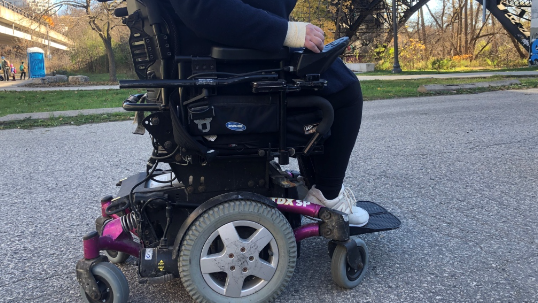
多伦多圣保罗选区新民主党省议员安德鲁(Jill Andrew)表示,她的办公室在听说丹妮丝申请可负担住房无果后,于今年3月份与她取得联系。
她说,“丹妮丝这种不稳定的情况永远不应该发生,但对于安省寻求可负担住房的人来说,这是毁灭性的现实。”
她的团队写信给安省省长福特、市政事务和房屋厅长克拉克(Steve Clark)和长期护理厅厅长富乐顿(Merrilee Fullerton),但都没有得到回复。
她表示,“没有人应该因为政府拒绝为无家可归或残疾人士的需求采取行动,而被迫寻求安乐死。丹妮丝需要政府的帮助,她没有太多的时间了。”
克拉克回应媒体称,省府在建造更多住房方面取得了“历史性成果”,以解决该省弱势群体无家可归的问题。与此同时,9 月份的安省残障保障计划的援助金增加了5%,这意味着受助者每月收到的款项变多了。
不过,他没有直接谈到丹妮丝的情况。
多伦多住房秘书处执行主任Abigail Bond表示,该市正在积极帮助丹妮丝获得合适的住房以及住房补贴。
但丹妮丝说,市政府工作人员提醒她,想要找到适合她居住的的补贴住房就像“大海捞针”。
丹妮丝说,她距离执行安乐死只剩下最后的文书工作了。葬礼已经安排好,委托书也已经签署。
她说,“这是唯一的选择。”
来源链接:
https://toronto.ctvnews.ca/toronto-woman-in-final-stages-of-maid-application-after-nearly-a-decade-long-search-for-housing-1.6145487





